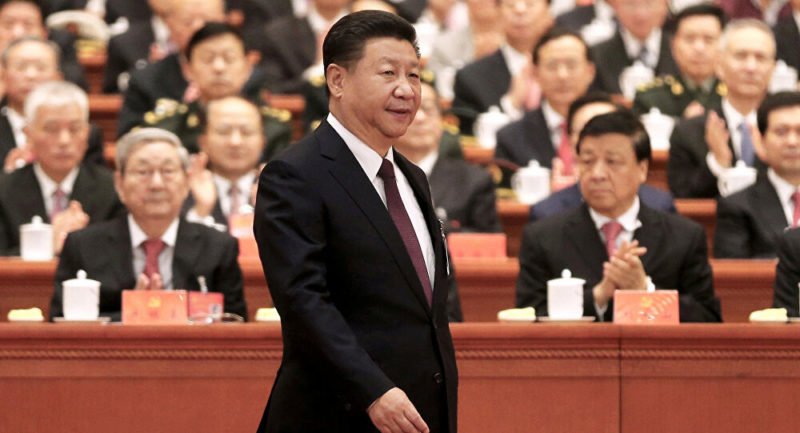QUAD summit 2021: From countering China’s rise to being a force for global good

Following the Indian Ocean tsunami, India, Japan, Australia, and the US made an alliance to provide cooperation on disaster relief efforts. In 2007, then, at that point, PM of Japan, Shinzo Abe, formalized the alliance, as the Quadrilateral Security Dialog or the QUAD. The Quad should set up an Asian Arc of Democracy however was hampered by an absence of attachment among its individuals and allegations that the gathering was just an anti-China bloc. The early emphasis of the QUAD, generally based around oceanic security, ultimately dispersed.
In 2017, faced again with the rising threat of China, the four countries revived the Quad, broadening its objectives and creating a mechanism that aimed to slowly establish a rules-based international order. However, despite its lofty ambitions, the Quad is not structured like a typical multilateral organisation and lacks a secretariat and any permanent decision-making body. In the recently held first-ever-in person meeting itself, administrative officials called QUAD an “informal group” with no military or security dimension to it. Hence, instead of creating policy along the lines of the European Union or United Nations, the Quad has focused on expanding existing agreements between member countries and highlighting their shared values. Additionally, unlike NATO, the Quad choose to conduct joint military exercises as a show of unity and diplomatic cohesion. In 2020, the trilateral India-US-Japan Malabar naval exercises expanded to include Australia, marking the first official grouping of the Quad since its resurgence in 2017 and the first joint military exercises among the four countries in over a decade. In March 2021, the Quad leaders met virtually and later released a joint statement titled ‘The Spirit of the Quad,’ which outlined the group’s approach and objectives ranging from a shared vision for free and open Indo-Pacific to working together for providing a safe and effective vaccine distribution.
However, recently amidst the current geopolitical flux of the repercussions of Afghanistan, the growing aggressiveness of China and the formation of AUKUS, a brand-new trilateral security partnership, the much-anticipated first in-person meeting of the Quadrilateral Security Dialogue (or QUAD, of India, the United States, Australia, and Japan) was held successfully in Washington and it was hosted by US President Joe Biden. While there were many speculations of the summit with China commenting it as “doomed to fail” and many debates about QUAD and its salience after the AUKUS submarine deal, the summit could be regarded as a grand success with the leaders agreeing on working towards a stronger infra partnership.
Opening the summit, President Biden said the four democracies have come together to take on common challenges from Covid to climate. The meeting lasted two hours and the leaders vowed to pursue a free and open Indo-Pacific region “undaunted by coercion”, which presented a united front amid shared concerns about China.

“QUAD to act as a force for global good”
- The leaders in line with the March 2021 announcement have given their assurance of exporting the additional COVID vaccines, manufactured thanks to the QUAD vaccine Partnership’s initiative in India for the Indo-Pacific and the world, and that they will coordinate with key multilateral initiatives, such as the COVAX Facility, to procure proven safe, effective, and quality-assured COVID-19 vaccines for low- and middle-income countries. The leaders also recognized the importance of open and secure supply chains for vaccine production.
- The leaders also recognised the importance of strengthening Science and Technology (S&T) cooperation in the areas of clinical trials and genomic surveillance and that the countries will conduct a joint pandemic-preparedness tabletop or exercise in 2022.
- The leaders agreed on giving cooperation to establish responsible and resilient clean-energy supply chains and to strengthen the Coalition for Disaster Resilient Infrastructure and climate information systems. Quad countries will work together for successful outcomes at the COP26 and G20 that uphold the level of climate ambition and innovation that this moment requires.
Broadening line of cooperation:
- The leaders have agreed to established cooperation on the deployment of 5G and its diversification; standards-based technology in terms of cybersecurity and to establish sector-specific contact groups to promote an open, inclusive, private-sector-led, multi-stakeholder, and consensus-based approach.
- The leaders also emphasized on the importance of supporting open, fair, and transparent lending practices in line with international rules and standards for major creditor countries, including on debt sustainability and accountability.
- The QUAD Fellowship was announced as a part of educational and people-to-people cooperation to provide 100 fellowships to leading science, technology, engineering, and mathematics graduate students across the four countries.
Building a stronger region:
- The leaders also agreed to closely coordinate their diplomatic, economic, and human-rights policies towards Afghanistan and to deepen their counter-terrorism and humanitarian cooperation in the months ahead in accordance with UNSCR 2593.
- The leaders also showed their commitments about maintaining their partnership and that it remains ambitious and far-reaching.
- The summit ended with the promise to continue building habits of cooperation and that the leaders, foreign ministers will meet annually while working towards establishing a stronger region.



















